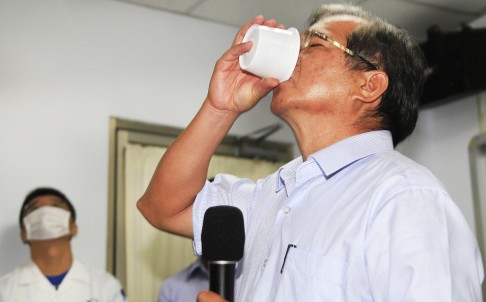Source:
Wikipedia
2014 Taiwan food scandal
The
2014 Taiwan food scandal refers to a series of food safety incidents in Taiwan involving the adulteration of cooking oil with recycled waste oil and animal feed oil that was discovered in September 2014.[1][2] At least 1,256 businesses were affected.
History
The series of incidents first came to light on 4 September 2014, when it was discovered that tainted cooking oil was being produced by Kaohsiung-based company Chang Guann Co. (強冠企業) and branded as Chuan Tung Fragrant Lard Oil (全統香豬油).[5] The company was found to have blended cooking oil with recycled oil, grease and leather cleaner. The recycled oil was processed by an unlicensed factory in Pingtung County owned by Kuo Lieh-cheng (郭烈成), who allegedly purchased the oil from waste recycler Hu Hsin-te (胡信德), whose factory is named Shun Te Enterprises (順德企業行), located in the Daliao District of Kaohsiung.[6][7]
Chang Guann purchased up to 243 tonnes of recycled waste oil disguised as lard from the Pingtung factory, starting in February 2014. The company then allegedly refined the waste oil before mixing it with processed lard and selling the tainted product to its distributors. The recycled waste oil was collected from restaurants, and included discarded animal parts, fat and skin.
On 11 September, reports revealed that in 2014, Chang Guann had also imported 87.72 tonnes of lard oil falsely listed for human consumption from Hong Kong-based Globalway Corp Ltd. (金寶運貿易) that were actually meant for animal use only. Since 2008, Chang Guann had imported 56 batches of lard oil weighing 2,385.1 tonnes from Hong Kong, about 300 tonnes of which were purchased from Globalway Corp between 2011 and 2014.[8]
The Taiwan Food Good Manufacturing Practice Development Association (TFGMPDA) reported that the cooking oil produced by Chang Guann has never been awarded GMP certification, although the TFGMPDA issued an apology saying that five food companies whose products have won GMP certification have used the tainted oil.[9]
Effects
According to Taiwan's Food and Drug Administration (FDA), a number of companies made food products using the tainted oil, including well-known brands such as Taiwan Sugar Corporation, Ve Wong Corp. (味王), Chi Mei Frozen Food Co. (奇美食品), Sheng Hsiang Jen Foods Co. (盛香珍食品), Gourmet Master Co. (美食達人), Yilin Group (憶霖), Hawdii Foods Co. (好帝一食品有限公司), etc. Restaurant chains, shops and stores were also affected, such as Good Morning (早安美芝城), Wu Wha Ma Dumpling Home (五花馬), Magie du Levain (樂金食品), Yu Jen Jai (玉珍齋), Lee Hou Cake Store (李鵠餅店), Black Bridge Foods (黑橋牌食品), Li Ji Cake Store (犁記餅店), etc.[10][11][12]
Wei-Chuan Food Corporation (味全), a company that was cited with using adulterated cooking oil in 2013, was also involved in using tainted cooking oil produced by Chang Guann. Its share price plummeted after the company announced a recall of 12 products made from the recycled oil: canned pork, pork sauces, meat paste and pork floss. The company promised refunds to its customers. The recall announcement subsequently also brought down the share prices of other related food companies.[13][14][15][16][17]
Schools around Taiwan pulled all of the products containing the tainted oil from their school meals after 16 schools were discovered to be using the adulterated oil products.[18]
Chang Guann was found in violation of the Act Governing Food Safety and Sanitation and fined NT$50 million.[3] Yeh Wen-hsiang (葉文祥), chairman of Chang Guann, was arrested for fraud for his role in the scandal.[19]
The FDA began indefinitely halting imports of edible lard oil from Hong Kong on 11 September.[20]
Reactions
Companies
- The President of Chang Guann Co. apologized to the public on 4 September 2014. He emphasized that his company was not aware and did not intentionally buy the tainted oil, and that the oil the company purchased from the illegal Pingtung factory was not cheaper than oil from other oil suppliers.[21]
Domestic
Taiwan
- President Ma Ying-jeou made a public statement saying that the oil scandal happened due to lax inspection of food manufacturing factories by local governments, and he urged local municipalities to strengthen checks on those facilities.[22] Democratic Progressive Party spokesman Huang Di-ying said President Ma should not shift the blame solely to the local governments since Chang Guann Co. has also allegedly imported over 2,400 tonnes of industrial-grade lard from Hong Kong over the last six years, with no foul play spotted by the central government.[23]
- Premier Jiang Yi-huah demanded the Legislative Yuan officials ensure food products containing the adulterated cooking oil be removed from store shelves and sealed. He also vowed to punish severely those who were involved in the making of the recycled oils, even though they met food safety standards.[24]
- Vice Premier Mao Chi-kuo described the selling of recycled oil by Chang Guann Co. as a vile criminal act and demanded the most severe penalties for the perpetrators.
- The Ministry of Health and Welfare commissioned a group of experts to examine the health implications of consuming the illegal cooking oil. The FDA immediately released a list of 235 food companies around Taiwan that had reportedly purchased the tainted oil products. They also tested the tainted oil for any heavy metals, aflatoxin and benzopyrene, which may cause cancer in humans. However, they came out with a conclusion that products from the tainted oil do not pose any immediate health effects because 67% of the oil was still genuine, although the remaining adulterated materials require further examination.[25]
- Minister of Economic Affairs Woody Duh urged the Taiwanese food companies to increase their level of alert when obtaining materials for their products and to make onsite inspections at their suppliers' production facilities.[26] The Industrial Development Bureau of the ministry plans to implement a full-scale monitoring system to trace the sources of raw materials and check the quality of all finished processed food products to prevent future similar incidents.[27]
- Investigators from the Ministry of Justice went through the bank accounts belonging to the companies and individuals involved in the tainted oil case to ensure all of their illegal gains were confiscated.
- The Ministry of National Defense removed all food products that could contain the tainted oil from its military stores serving the armed forces.
- The Criminal Investigation Bureau of the National Police Agency, accompanied by environmental and health officials, raided and swept the unlicensed Pingtung factory. Investigators found that the low-grade oil refined from food waste had been procured by several other companies and repackaged as lard oil to be sold to clients, and it was expected that at least around 200 tonnes of the oil had entered the market.[28]
- The Department of Health of Kaohsiung City Government fined Chang Guann Co. NT$50 million, the highest that can be imposed on violations under Article 15-1 of the Act Governing Food Safety and Sanitation (食品安全衛生管理法). The city's Economic Development Bureau also shut down Shun Te Enterprises after it was found to be unregistered.
International
China: The General Administration of Quality Supervision, Inspection and Quarantine carefully examined the past records of the claimed-affected companies and restaurants. They also warned customers to be cautious of food products that may contain the tainted oil.[29]
Hong Kong: Secretary for Food and Health Ko Wing-man said that the Hong Kong Government would check whether any food imported into the region had any tainted oil from Taiwan. The authorities would try to trace the buyers of the tainted oil.[30]
Macau: The Government of Macau was criticized because of lax inspection of food ingredient imports, although the authorities had earlier said that at least 21 local food manufacturers and retailers had been using oils supplied by Chang Guann Co.[31]
Philippines: The Food and Drug Administration told businesses to pull questionable Taiwanese food products off shelves and said that the Philippines would accelerate signing a memorandum on cooperation with Taiwan on strengthening food safety checks.[32]
Singapore: The Agri-Food and Veterinary Authority of Singapore conducted tests on suspicious food items imported from Taiwan. The incident also prompted some retailers in the country to seek clarification from their Taiwanese suppliers. Travel agencies also prevented Singaporeans from buying suspected tainted products in Taiwan.[33]
See also





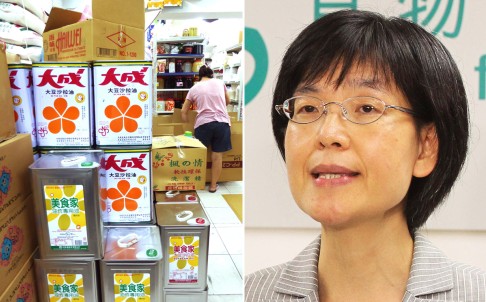
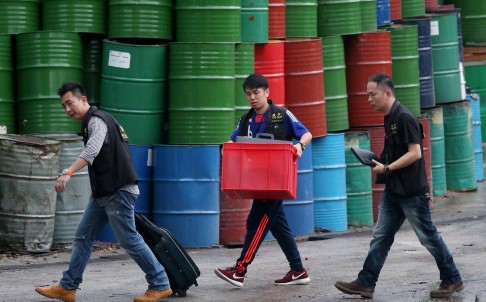
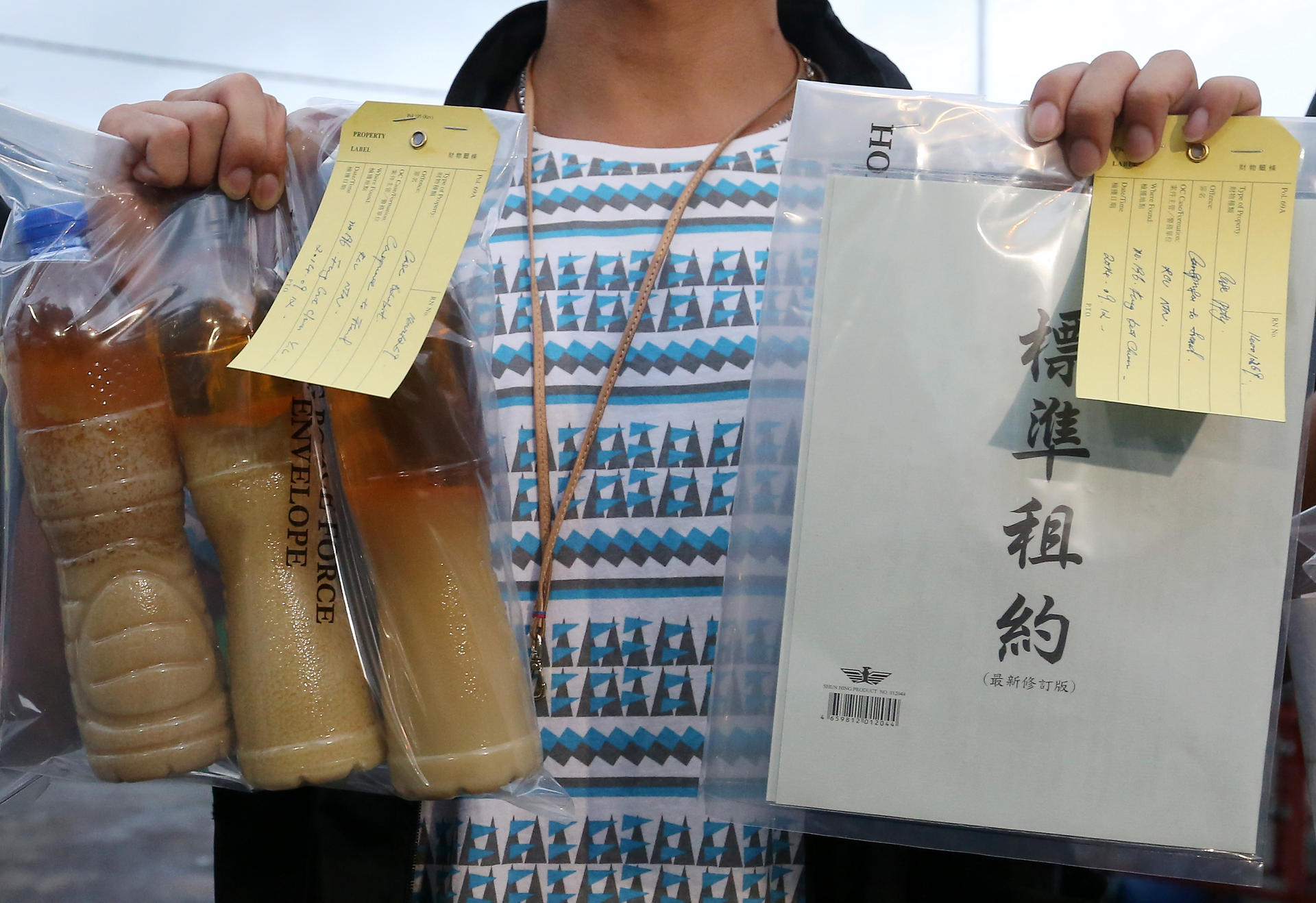
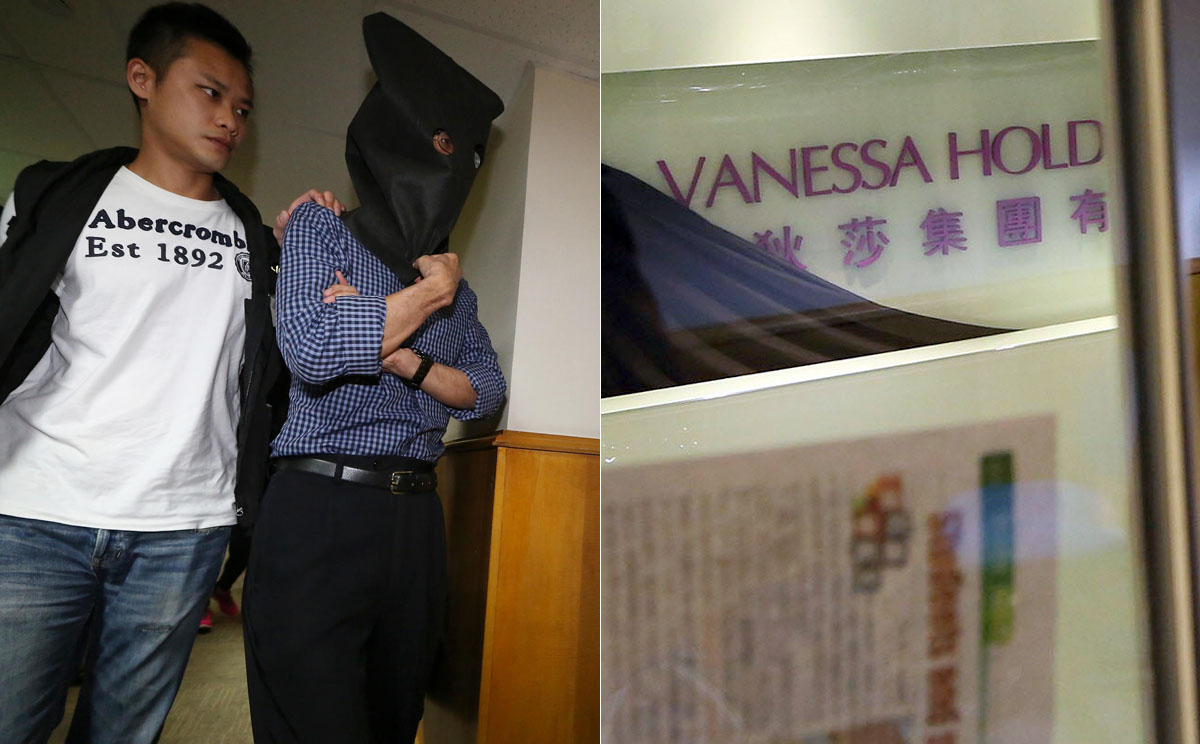
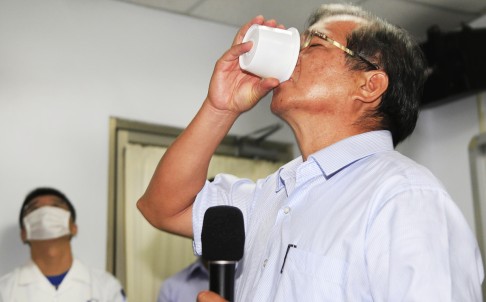
 27CDB6E-AE6D-11cf-96B8-444553540000" id="player-element" width="512" height="288" codebase="http://fpdownload.macromedia.com/get/flashplayer/current/swflash.cab"><param name="movie" value="http://static.movideo.com/flash/movideo_player.swf" /><param name="quality" value="high" /><param name="bgcolor" value="#000000" /><param name="allowScriptAccess" value="always" /><param name="allowFullScreen" value="true" /><param name="wmode" value="window" /><param name="flashVars" value="apiKey=movideoScmp&alias=SCMPflash&playerId=movideoScmp_SCMPflash_1410668321186&mediaId=967055"/><embed src="http://static.movideo.com/flash/movideo_player.swf" quality="high" bgcolor="#000000" width="512" height="288" name="player-element" align="middle" play="true" loop="false" quality="high" allowScriptAccess="always" allowFullScreen="true" type="application/x-shockwave-flash" wmode="window" pluginspage="http://www.adobe.com/go/getflashplayer" flashVars="apiKey=movideoScmp&alias=SCMPflash&playerId=movideoScmp_SCMPflash_1410668321186&mediaId=967055"></embed></object>
27CDB6E-AE6D-11cf-96B8-444553540000" id="player-element" width="512" height="288" codebase="http://fpdownload.macromedia.com/get/flashplayer/current/swflash.cab"><param name="movie" value="http://static.movideo.com/flash/movideo_player.swf" /><param name="quality" value="high" /><param name="bgcolor" value="#000000" /><param name="allowScriptAccess" value="always" /><param name="allowFullScreen" value="true" /><param name="wmode" value="window" /><param name="flashVars" value="apiKey=movideoScmp&alias=SCMPflash&playerId=movideoScmp_SCMPflash_1410668321186&mediaId=967055"/><embed src="http://static.movideo.com/flash/movideo_player.swf" quality="high" bgcolor="#000000" width="512" height="288" name="player-element" align="middle" play="true" loop="false" quality="high" allowScriptAccess="always" allowFullScreen="true" type="application/x-shockwave-flash" wmode="window" pluginspage="http://www.adobe.com/go/getflashplayer" flashVars="apiKey=movideoScmp&alias=SCMPflash&playerId=movideoScmp_SCMPflash_1410668321186&mediaId=967055"></embed></object>